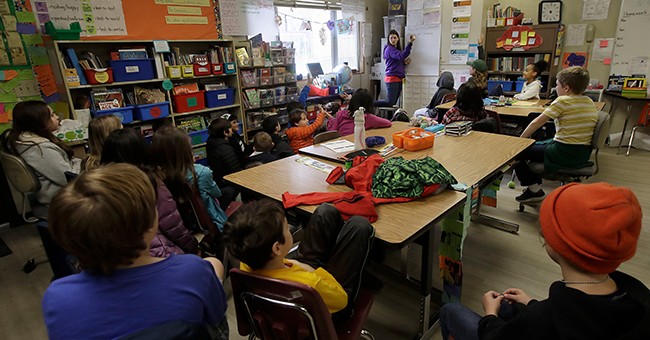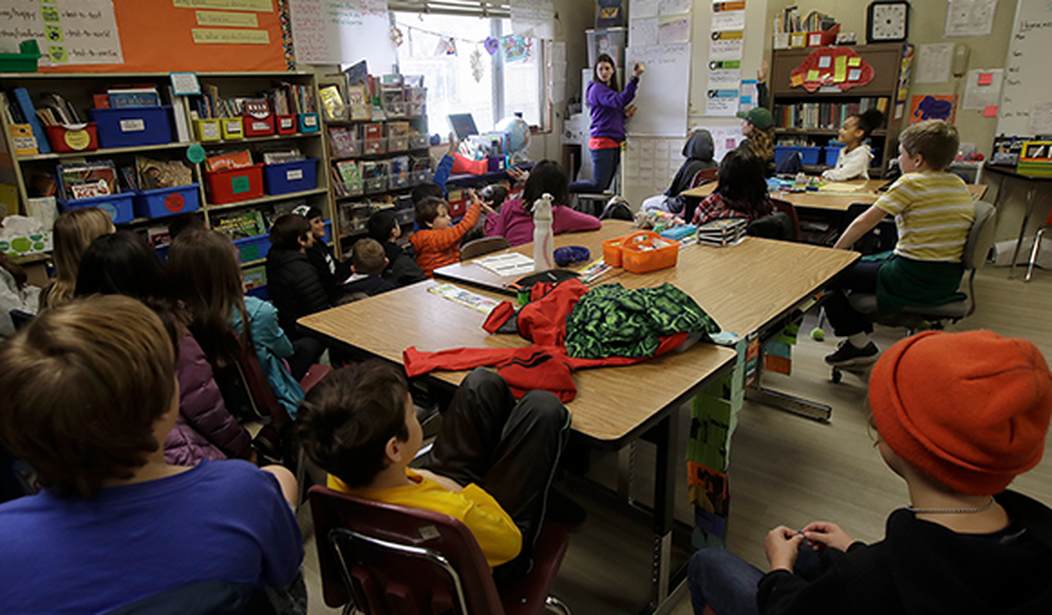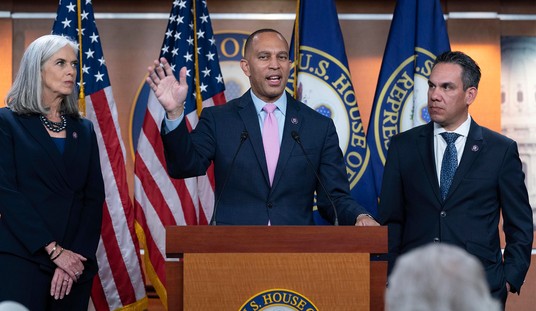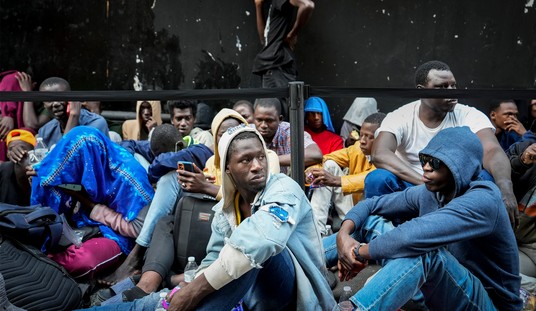
As any parent of a child with a physical or learning disability knows, ensuring that the child’s educational needs are met is a challenge during the best of times. In the time of coronavirus shutdowns and forced distance learning effectively meeting those needs is not just a challenge; it’s impossible.
When California’s schools closed down in March, presumably for two to three weeks, parents of special needs students knew their children would have some form of setback from missing out on their therapeutic services but were willing to make that sacrifice to help blunt the effects of the coronavirus on the state and country. As the pandemic shutdowns dragged on districts across the state scrambled to attempt to meet the needs of these students virtually, and while parents were grateful for at least some contact with the professionals so vital to their children’s success, not one parent will say that those services were in any way adequate for the long term.
Now that schools in approximately 80 percent of California are subjected to forced distance learning thanks to an edict from Gov. Gavin Newsom, the parents of more than 600,000 students with disabilities are distraught. Christy Ruiz, mother of two sons on the autism spectrum who attend school in the Hart Unified School District in Santa Clarita, tells RedState that Hart had already announced a hybrid learning program for the next school year when Newsom swooped in. Ruiz said:
I was really grateful that Hart had a plan to have our kids brought back to school. Even if we went to hybrid model it was some schooling rather than nothing. So when Newsom made his announcement, the first thing I thought was that Newsom didn’t get it. He’s very much out of touch with his constituents. I just thought that as a parent I’m listening to pediatricians, doctors; I’m doing my due diligence. When the pediatrician says this is the best, the healthiest thing for your child, I listen to that. They’re all saying that it’s imperative and essential to have my kids go back to school in person.
For him to disregard that and not really listen to what the professionals are saying, it’s just heartbreaking. You almost feel that you’re in a dictatorship.
Ruiz, who’s been active in groups for parents of special needs students in the Hart district for more than seven years, spelled out the problems in attempting to deliver services to this population virtually.
Speech therapy is very hands-on. They’re looking at the student’s mouth, teaching them where to place their tongue to enunciate. Our children are hands-on learners. They need physical touch to remind them, this is the way you do it, this is how we sit, or to calm them down. They need to feel that human connection in order to learn. When they’re devoid of all of that support they can’t learn. It’s terrible that we are a forgotten population. No one spoke about us with school boards. The governor has never addressed it.
In a sign that California’s media isn’t carrying Newsom’s water nearly as much as they have in the past, the Los Angeles Times published a story Sunday entitled: “Children with disabilities are regressing. How much is distance learning to blame?” Simon Tan, the father of a severely handicapped daughter, described the effect distance learning has had on her:
Olivia Tan is regressing. She’s lost much of her curiosity, is unwilling to explore her home or flip through books as much as she used to — and her father feels helpless.
The 6-year-old is deaf, blind in one eye and has cognitive delays, heart issues and other physical difficulties that are part of CHARGE syndrome, a disorder caused by a gene mutation. At her Bay Area elementary school, she had a one-on-one aide. At home she has three siblings and two parents trying desperately to offer some semblance of education.
“If somebody asked me just from a standpoint of — are the special education services sufficient? The answer is blatantly no, in no way are they sufficient.”
Ruiz said that she and the other parents in her group are eager to help their children but simply lack the expertise to do so.
A lot of parents were thrown for a huge loop. What do we do? Do we have the means, do we have the capacity within ourselves to teach our children, to give them their critical services? My degree wasn’t in speech therapy or in any of the fields we work with.
During the spring we ended up having behaviorists come to our home and work with our son because we knew that regression could be severe and dangerous to him. All of these years of getting the right team, the right services in place, and having him have a meaningful progression in his educational system just kind of vanished.
Simon Tan, a clinical neuropsychologist at Stanford Hospital, agrees with Ruiz. He told the LA Times that he is “overwhelmed by the daily responsibility of carrying out his child’s therapies amid coronavirus-forced school closures.”
The effects of going without necessary therapies and services for maybe an entire year will be long-term and severe, as RedState Senior Editor Joe Cunningham wrote. Carol Higa, director of special education for the L.A. County Office of Education, said:
“We’re so nervous about students coming back and having huge regression. How do you recoup that?”
In addition to sadness and concern, Ruiz is outraged that Newsom and state education officials are ignoring this most vulnerable group of students.
This has nothing to do with education. It’s all political. They have a fundamental right to be educated. They’re guaranteed a free, appropriate, public education through the Individuals with Disabilities Education Act. These laws were implemented to guarantee their right to an appropriate education, and right now that’s in the toilet. An IEP is a legally-binding contract. But right now the governor is treating it like nothing. But I’m sure his kids are being educated.
Our children are being held hostage. We’re sick and tired, because these effects of regression on our children are going to last for years to come. When this generation becomes adults, it’s going to be a scary time. How can you gain back all of this lost time education-wise?
Stunningly, the state is mandating that districts do the impossible and provide special education to students “as required by federal laws,” but at the same time, they’ve waived timelines requiring students to receive assessments and services quickly.
Special education attorneys in California say hundreds of clients, especially economically disadvantaged students and foster youths, overwhelmingly are not receiving the education or services they are entitled to, nor are students who need assessments to receive appropriate care.
Ruiz’s anger and inner “mama bear” spurred her to action. She and eight other parents have filed a lawsuit against Gavin Newsom, demanding that he allow each district to decide how to best serve their students and whether or not to open schools full-time or use a hybrid model. In that case, Brach v. Newsom, a hearing on a temporary restraining order is set for Monday, August 17 – the first day of school in many districts.
Why is this happening? Why can’t students go back to school on campus? Well, Newsom says it’s because it’s just too dangerous based on the data and California’s spike in cases. Decisions must be based on the data, he says. But, the events of the two weeks have shown Californians how faulty the state’s data is.
First, numerous counties were lumping positive coronavirus antibody tests in with active cases when reporting their numbers. Then it was revealed that the state had a backlog of 300,000 test reports because of a complete breakdown of the California Reportable Disease Information Exchange (CalREDIE) and that, in conjunction with that, the state’s largest private laboratory had been unable to transmit results to the state for five days because the state failed to renew a certificate necessary for that transmission. California Health and Human Services Director Dr. Mark Ghaly said that the numbers of hospitalizations, ICU utilization, and deaths were accurate because they were in a separate system. That means that when those test results are received the hospitalization and death rates will decrease dramatically, making mandated distance learning even less necessary.
California’s coronavirus response and testing is an unmitigated disaster, and the most vulnerable are paying dearly for it.
(The Center for American Liberty filed suit in the Brach v. Newsom case on behalf of the Plaintiffs. Read more about the suit and how to donate here.)














Join the conversation as a VIP Member